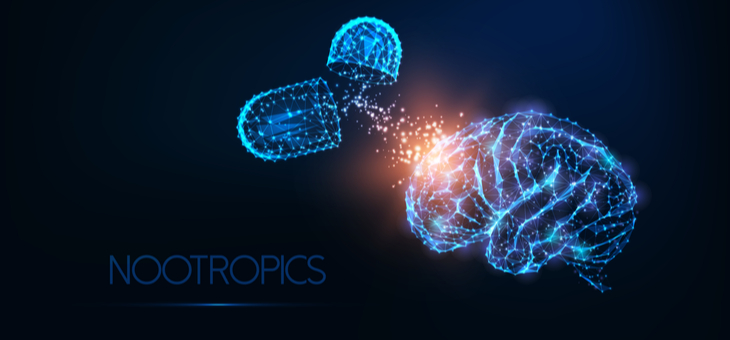Who wouldn’t want to buy a better brain? Gain 15 IQ points just by popping a pill? Well that’s what a class of brain-enhancers called nootropics are purported to be able to do.
But can you believe the hype?
Nootropics is being hailed as the next step in human evolution by Silicone Valley tech giants and the nootropics industry is now worth billions of dollars annually. A huge variety of pills and supplements promise to improve memory, concentration and focus. The claims are big, but what is actually at play here?
Nootropics broadly fall into two categories. Herbal nootropic supplements include natural substances such as panax ginseng, ginko biloba, bacopa monnieri, pycnogenol, turmeric and even the caffeine in your morning coffee.
Sydney-based health coach Caroline Groth told The Australian that she takes a combination of nootropic herbs and supplements, including rhodiola rosea, ginkgo biloba and white peony.
Read: Drinks a neuroscientist recommends for better brain health
“It’s like when you get a buzz when you have a coffee,” Ms Groth says.
“But it’s not like the same spike you get with a coffee; I just notice I have a steadier level of concentration and focus.”
After Sydney was recently placed into lockdown, Ms Groth took a two-week break from taking the supplements and says she experienced a noticeable decline in cognitive ability.
“My brain fog returned, so I’m taking them again. You need to give it about 10 to 14 days before you’ll start to notice a difference, but it’s worth persevering.”
But are the effects scientifically measurable? Is Ms Groth feeling anything more than a placebo effect?
Read: The five pillars of brain health
“Both bacopa and curcumin seem to have strong anti-inflammatory properties, and that could be the way in which they’re improving cognitive health over a period of time,” says Professor Con Stough, adjunct professor of cognitive neuroscience and psychology at Swinburne University.
“Something like sleep could be even more important than taking a nootropic for cognition,” Prof. Stough says.
“If we don’t get enough sleep, it can be a really big issue acutely and also chronically. Sleep, exercise, nutrition and even things like depression can impact our cognitive ability, so having a good social network, developing relationships; those non-cognitive things can have a big part to play.
“One explanation is that they may increase blood flow to the brain, which allows the brain to use more oxygen.”
Read: How ‘super-agers’ live to 100 with a healthy mind
At the other end of the scale are the class of nootropics known as eugeroics, or artificial stimulants. These drugs promise increased levels of wakefulness, focus and concentration, but can come with some nasty side-effects such as anxiety, headaches, pins and needles, chest pains and dizziness.
Common brand names used for these drugs in Australia include Modafin, Nuvigil and Modavigil. All require a prescription.
The Australian Drug Foundation says: “The research is still inconclusive on exactly how the drugs work to stimulate the mind, but early research indicates they may act on a variety of different systems within the body simultaneously.”
The foundation also notes that it lacks long-term data on the effects of these drugs on other parts of the body.
Would you or do you take ‘smart pills’? How do you keep your brain active? Share your tips and experiences in the comments section below.
If you enjoy our content, don’t keep it to yourself. Share our free eNews with your friends and encourage them to sign up.

